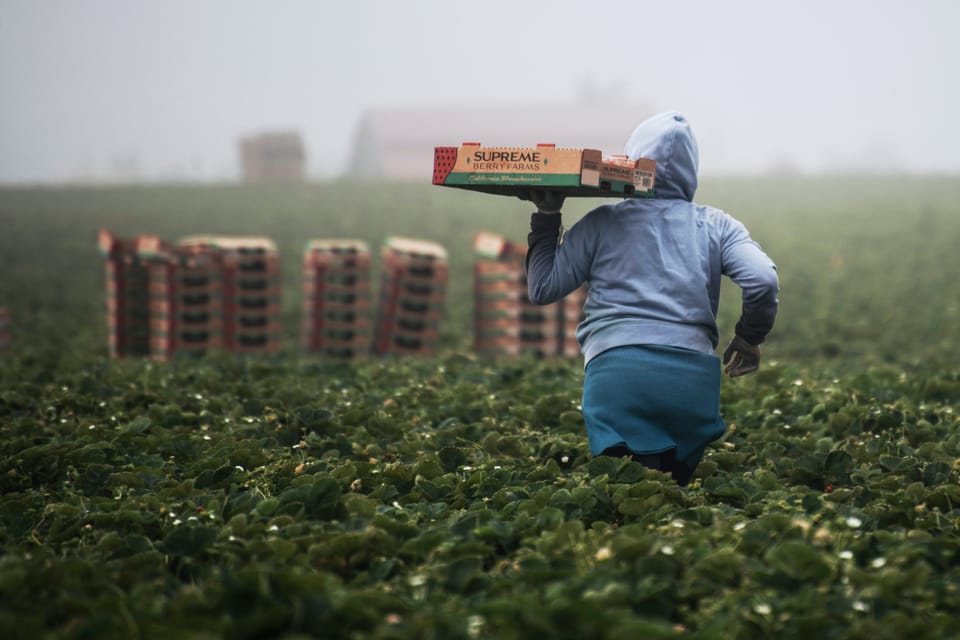Food-related sustainable development goals top list of off-track SDGs

The latest UN Sustainable Development Report is a stark reminder that sustainability progress has been far too slow, with none of the 17 SDGs likely to be met by 2030. Food-related goals around zero hunger, land use, biodiversity and marine ecosystems are the most off-track, demanding decisive action from agribusiness players.
Published today by the UN Sustainable Development Solutions Network (SDSN), the Sustainable Development Report 2024 analyses the progress (or lack thereof) made by countries and regions towards the achievement of the Sustainable Development Goals (SDGs).
It found that on a global level, just 16% of the 169 SDG targets are on track to be met by 2030, with the remaining 84% showing “limited progress or a reversal of progress”. Progress is particularly lagging for SDG 2 (Zero Hunger), SDG 11 (Sustainable Cities and Communities), SDG 14 (Life Below Water), SDG 15 (Life on Land) and SDG 16 (Peace, Justice and Strong Institutions).
Progress towards agriculture SDGs must accelerate
Much of the issue relates to the way we produce and consume food – an area where little has changed since 2015. Indeed, last year’s COP28 in Dubai was the first climate conference where food was on top of the agenda, eight years after the signing of the Paris Agreement.
The event resulted in the signing of the Emirates Declaration on Sustainable Agriculture, Resilient Food Systems, and Climate Action, which will see countries integrate food systems into their next round of GHG reduction goals (by COP30). This is expected to catalyse a shift towards regenerative agriculture and more climate-friendly diets.
But since then, governments have tended to scale back policies to incentivise sustainable change in the industry. For instance, the European Commission’s 2040 climate targets removed references to agriculture decarbonisation goals, and New Zealand recently scrapped a plan to put a price on agricultural emissions.
The Food, Agriculture, Biodiversity, Land-Use, and Energy (FABLE) Consortium, which brought researchers from 22 countries to assess how 16 targets related to food security, climate mitigation, biodiversity conservation and water quality could be achieved by 2030 and 2050, found current commitments are largely insufficient.
“Globally, 600 million people will still suffer from hunger by 2030; obesity is increasing; and greenhouse gas emissions from agriculture, forestry, and other land use account for almost a quarter of total annual global GHG emissions,” notes the report.
Global food sustainability requires ‘several dramatic changes’
According to the FABLE Consortium, three “dramatic changes” could put the world back on track to meet food-related SDGs:
- Shifting diets to limit animal-based protein consumption
- Investing to foster productivity
- Implementing inclusive, robust, and transparent monitoring systems to halt deforestation
This ‘global sustainability pathway’ would help avoid up to 100 million hectares of deforestation by 2030 and 100 gigatons of CO2 emissions by 2050, though “additional measures would be needed to avoid trade-offs with on-farm employment and water pollution caused by excessive fertiliser application, and to ensure that no one is left behind, particularly in the fight to end hunger”, the report adds.
But it means companies operating in this sector must align their business models with sustainable goals, instead of lobbying to weaken climate policies.
“The private sector must be a key driver for sustainable development, including leadership of technological transformations in energy, agriculture, climate resilience, digital economy and urban infrastructure essential for sustainable development. Profits must be the reward for contributions to the common good, not private gains achieved at the public’s expense. Ethical businesses should align with the SDGs and hold themselves accountable to these global goals,” warn the authors.
Regenerative agriculture advances
Several companies in the food industry have announced plans to roll out regenerative agriculture practices in their supply chains, and some are already seeing benefits.
ADM, for instance, says these practices cut emissions by 300,000 tonnes last year, and last week announced an extended collaboration with Bayer to support farmers converting to regenerative agriculture.
PepsiCo has also seen yields improve by an average of 3% and greenhouse gas emissions drop by 20% on farms where it has piloted regenerative agriculture.
But a lack of common definition and early profitability losses continue to complicate the work of those leading the transformation.







Member discussion